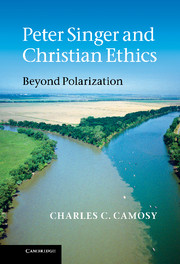Chapter 1 - Abortion
Published online by Cambridge University Press: 05 August 2012
Summary
A week-old baby is not a rational and self-aware being, and there are many nonhuman animals whose rationality, self-awareness, capacity to feel and so on, exceed that of a human baby a week or a month old. If . . . the fetus does not have the same claim to life as a person, it appears that the newborn baby does not either. If these conclusions are too shocking to take seriously, it may be worth remembering that our present absolute protection of the lives of infants is a distinctively Christian attitude rather than a universal ethical value.
Peter Singer, Practical EthicsFor God, the Lord of life, has conferred on [humanity] the surpassing ministry of safeguarding life in a manner which is worthy of man. Therefore from the moment of its conception life must be guarded with the greatest care while abortion and infanticide are unspeakable crimes.
Bishops of Vatican Council ii , Gaudium et SpesINTRODUCTION
If one is after productive exchange between Peter Singer and Christian ethics, it might seem that abortion is an odd place to begin. In his important and comprehensive work Practical Ethics, Singer suggests that
we accord the fetus no higher moral status than we give to a nonhuman animal at a similar level of rationality, self-consciousness, awareness, capacity to feel and so on. Because no fetus is a person, no fetus has the same claim to life as a person.
He believes that the overwhelming majority of abortions are justified because a woman's preferences will almost always outweigh the (at best) rudimentary preferences of a fetus. And as we will soon see, Singer notoriously goes further and argues that the right to an abortion also implies a right to infanticide, because a newborn infant, like a fetus, has few valuable preferences. Contrast this point of view with Pope John Paul ii in Evangelium Vitae:
I declare that direct abortion, that is, abortion willed as an end or as a means, always constitutes a grave moral disorder, since it is the deliberate killing of an innocent human being.
- Type
- Chapter
- Information
- Peter Singer and Christian EthicsBeyond Polarization, pp. 11 - 40Publisher: Cambridge University PressPrint publication year: 2012

